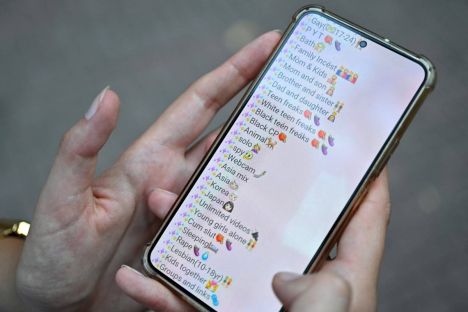With an overwhelming vote again, when will Cuba be freed from US embargo?
With an overwhelming vote again, when will Cuba be freed from US embargo?
The United Nations General Assembly has called for an end to the 30-year US embargo on Cuba for the 30th consecutive time. While a majority of 185 countries voted in favor of the resolution, Israel joined the United States in voting against it, and Brazil and Ukraine abstained.
The draft resolution entitled “The necessity of ending the economic, commercial and financial embargo imposed by the United States of America against Cuba” was discussed on Tuesday, November 2 and Wednesday, November 3.
Cuban Foreign Minister Bruno Rodriguez said before the vote that since 2019, the United States government “has escalated the siege around our country, taking it to an even crueler and more inhumane dimension, with the purpose of deliberately inflicting the biggest possible damage on Cuban families.”
Rodriguez noted that during the first 14 months of the Joe Biden administration, the damage to the Cuban economy amounted to about $6.35 billion, equivalent to more than $15 million a day.
It is worth noting that former President Barack Obama began the process of ending the embargo, as his administration had decided in 2016 to abstain from voting, a decision that Donald Trump later canceled, and Biden is now continuing the policy of his predecessor, whom he considers his political foe, rather than the president under whom he served as vice president.
World vs. US again
Groups and organizations supporting the draft resolution included ASEAN, SICA, CELAC, G77 + China, CARICOM, the Organization for Islamic Cooperation, the Group of Friends in Defense of the Charter of the United Nations, the Non-Aligned Movement, and the African Group.
The General Assembly president asked that “the list of speakers for the debate on this item be closed in view of the large number of delegations already inscribed in the list” on the draft resolution on the necessity of ending the blockade on Cuba.
The representative of the Organization of Islamic Cooperation (OIC) said that they “joined the call of the overwhelming majority to put an end to the embargo against Cuba. OIC member states support Draft Resolution A/77/L.5.”
“ASEAN joins other members of this Assembly to reiterate our strong support for the United States lifting of its unilateral economic, commercial and financial embargo against Cuba, as soon as possible,” said that group's spokesperson.
In turn, the Central American Integration System (SICA), which consists of Belize, Costa Rica, El Salvador, Honduras, Guatemala, Nicaragua, Panama and the Dominican Republic, supported the adoption of the resolution.
CELAC/ECLAC, through its representative, reiterated its call to the United States to accept the call of countries of Latin America and the Caribbean, all regions of the world and its own people to put an end to the unjust blockade against Cuba.
The representative of the G77 + China said, “The urgency of lifting the blockade is even clearer considering that this will be the 30th occasion in which the General Assembly will approve a Resolution to call for its end.”
CARICOM also expressed its strong dissatisfaction with the continued imposition of the embargo and denounced the designation of Cuba on the list of state sponsors of terrorism.
The representative of the African Group supported the draft resolution by saying, “We call on the United States government to work towards restoring positive relations and lifting this long-standing blockade imposed on the government and people of Cuba.”
“The unjust and abusive blockade against Cuba constitutes, without a doubt, one of the most prolonged and serious systematic violations of international law and the Charter of the United Nations,” said the representative of the Group of Friends in Defense of the Charter of the United Nations.
Defending his government's decision, the United States representative said that they oppose the resolution, “but we stand with the Cuban people and will continue to seek ways to provide meaningful support to them. We encourage this body to urge the Cuban government to listen to the Cuban people and their demands to determine their own future.”







